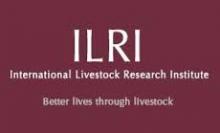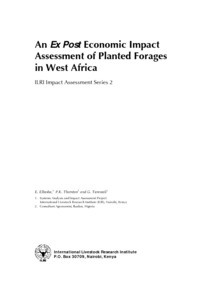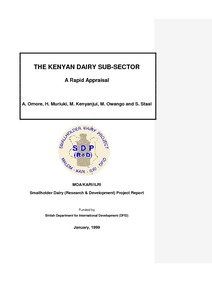Location
Vision, mission and strategy
ILRI's strategy 2013-2022 was approved in December 2012. It emerged from a wide processof consultation and engagement.
ILRI envisions... a world where all people have access to enough food and livelihood options to fulfil their potential.
ILRI’s mission is... to improve food and nutritional security and to reduce poverty in developing countries through research for efficient, safe and sustainable use of livestock—ensuring better lives through livestock.
ILRI’s three strategic objectives are:
- with partners, to develop, test, adapt and promote science-based practices that—being sustainable and scalable—achieve better lives through livestock.
- with partners,to provide compelling scientific evidence in ways that persuade decision-makers—from farms to boardrooms and parliaments—that smarter policies and bigger livestock investments can deliver significant socio-economic, health and environmental dividends to both poor nations and households.
- with partners,to increase capacity among ILRI’s key stakeholders to make better use of livestock science and investments for better lives through livestock.
This is ILRI’s second ten-year strategy. It incorporates a number of changes, many based on learning from the previous strategy (2000–2010, initially produced in 2000 and modified in 2002), an interim strategy (2011–2012) and an assessment of the external and internal environments in which the institute operates.
Members:
Resources
Displaying 926 - 930 of 1152Ecoregional research in sub-humid West Africa
There are diverse opinions as to what an ecoregional research approach should involve. Ecoregional research is meant to fill gaps in natural resources management research, rationalise overlapping mandates, provide focal points and streamline interactions between NARS (National Agricultural Research Systems) and CGIAR (Consultative Group on International Agricultural Research) centres. This paper describes the institutional structure and technical operation of the proposed ecoregional programme in sub-humid West Africa.
Ecoregional research at ILRI. Proceedings of a workshop
The major objectives of this workshop are to sharpen the focus of ILRI's ecoregional research, to further identify commonalities in tools and new methods that can enable ILRI to do effective transregional research, and to identify improvements to the way in which ILRI does ecoregional research.
An ex post economic assessment of planted forages in West Africa
This study assesses, in an indicative way, the impact of fodder banks and forage legume technology in countries of West Africa. The economic surplus method is used to estimate the social rate of return to public investment in research on fodder banks and the distribution of that return amongst producers and consumers. Subsequent sections of this report describe the technology of fodder banks, the economic surplus method, sources of data and the results of the analyses.






